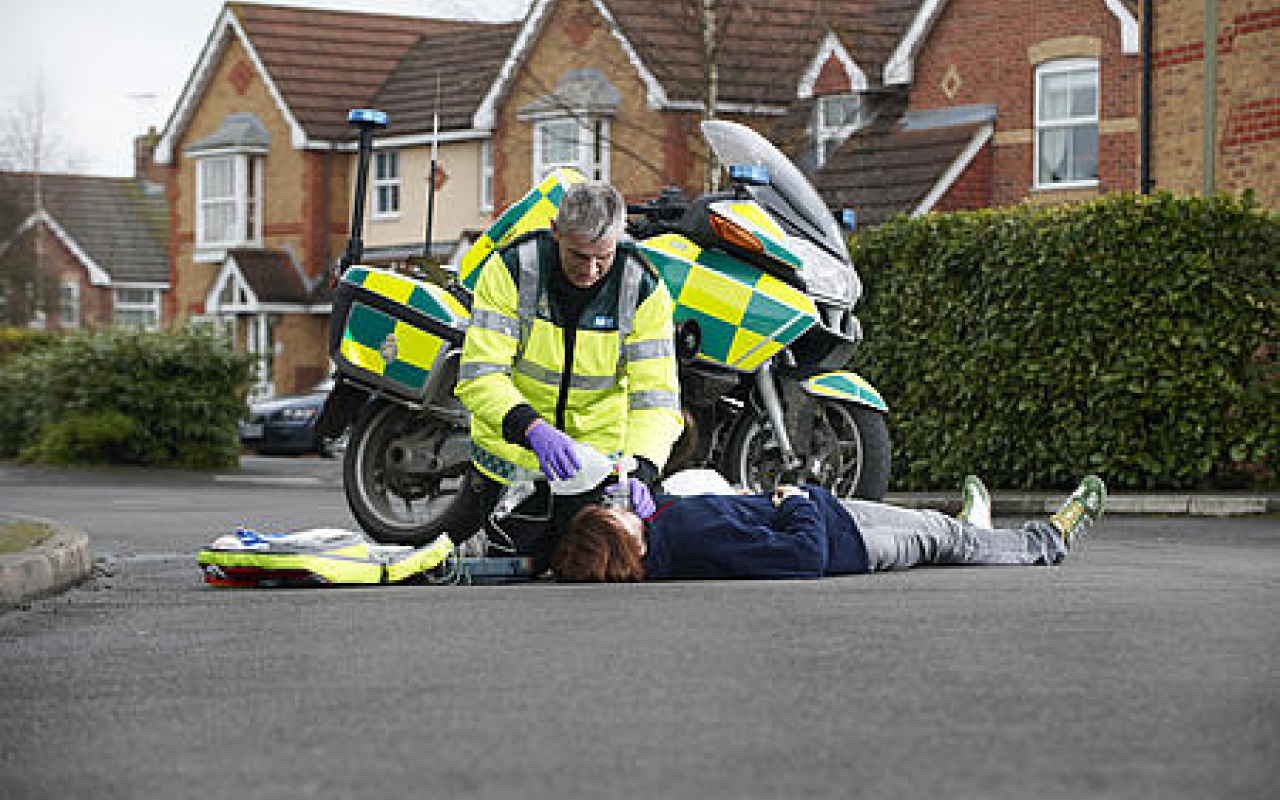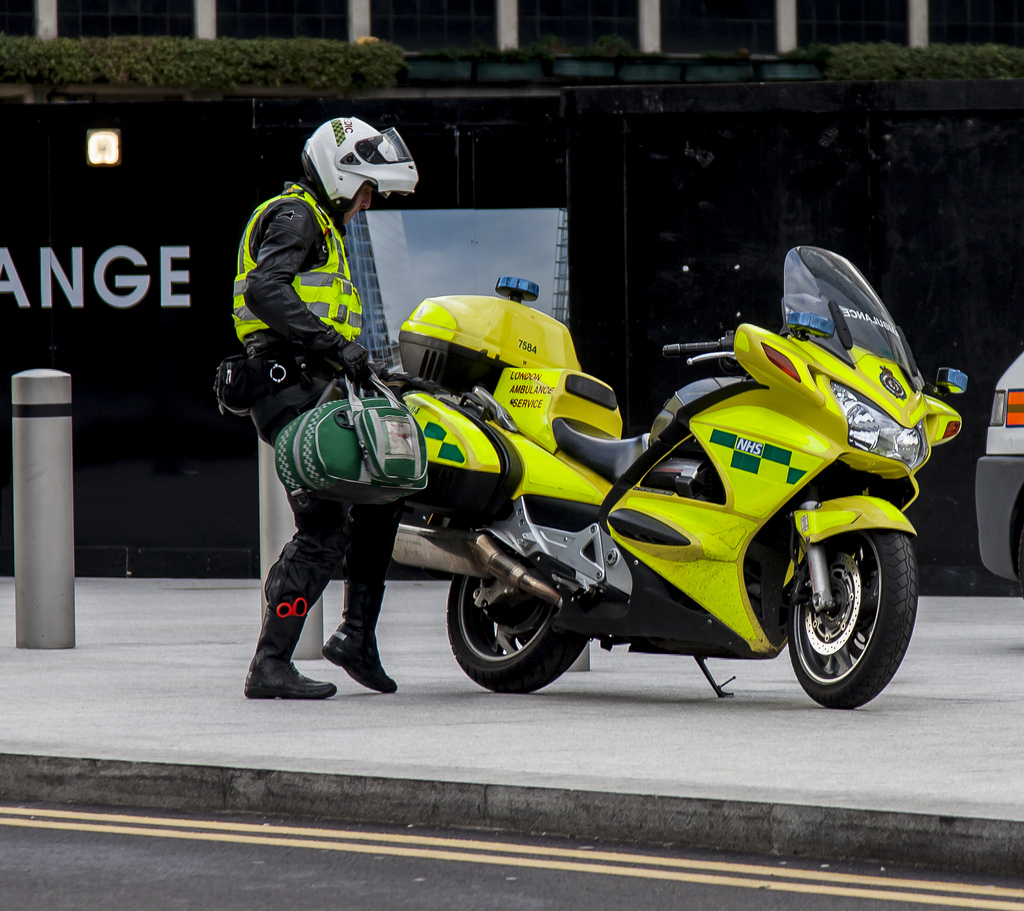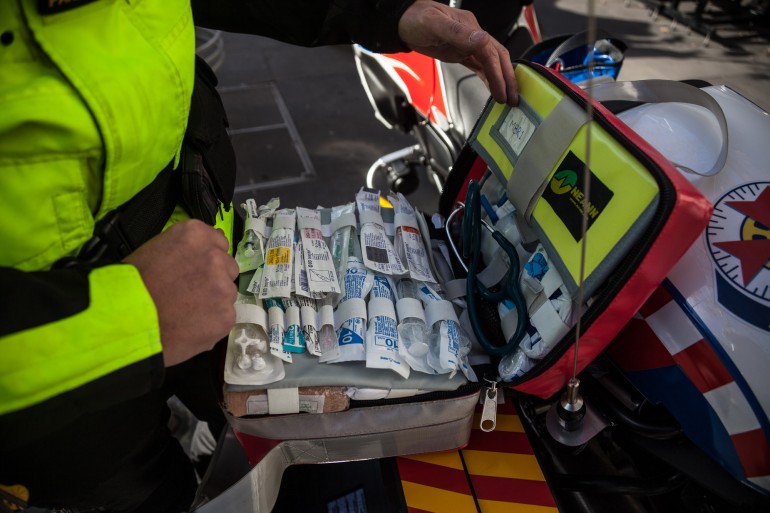Two Wheels Good
How motorcycles benefit emergency healthcare services
John Newman
The city of Melbourne, Victoria, recently announced that following a three-year trial using motorcycle paramedics, the facility will now become a permanent part of their emergency response services.
In the last financial year, the team responded to almost 3000 cases; 80% of these were life threatening or urgent. The paramedics are mounted on BMW700GS bikes, which have been specially adapted for emergency services. The clincher for their inclusion as part of the emergency response policy is, of course, the ability of motorcycles to make their way through congested city traffic far quicker than ambulances or other four-wheeled vehicles.
A number of countries throughout the world - Japan, Brazil, Holland, Hong Kong and Norway, for example - utilise motorcycles to get to emergency medical situations as quickly as possible. In Nantucket, the USA, they deploy what are termed 'Medical Bikes' in the summer, when tourists increase the population ten fold, from 6,000 to 60,000.
There's history here. In the first world war, the British, French and US had motorcycle ambulances that could carry a stretcher, sometimes two, one atop the other. The Red Cross used an 8hp stretcher motorcycle that had a tighter turning circle than other vehicles, could be pushed if it was stuck in the endless mud, and had better fuel consumption. At this relatively early stage of suspension development, transportation on one of these cannot have brought much, if any, relief to the wounded.
Consistent studies of response times have shown that motorcycle mounted paramedics reach situations quicker than their four-wheeled counterparts. As well as being life savers for people who may have had a heart attack, they can also act as the first response and assess whether a fully equipped ambulance and medical team are required to attend.
Response times are vital. In Singapore, they found that the motorcycle paramedic arrived five minutes before an ambulance could get to the scene. A Dutch study found that over distances up to seven kilometers, a motorcycle arrives two minutes faster. That may not seem very much, but think about the last time you witnessed a minutes silence at a football game or similar occasion. It's a long time if someone is on the ground struggling to breath, or blood is escaping from a wound.
The London Ambulance Service has a team of Motorcycle Responders, based at their headquarters in Waterloo. They are also able to call on teams in the boroughs of Hackney, Tower Hamlets, the City of London and Croydon: all areas where nowadays traffic congestion is almost permanent (even at night, as a burgeoning entertainment and night time economy often sees the streets of Central London as crowded at 2 am as at 2 pm). The responders have been operating since 1991 and use a fleet of Honda Pan Europeans, which are necessary as they have a lot of first aid and medical equipment to carry, in addition to the communication equipment needed.

Despite the potential stress of being constantly exposed to traumatic and emotional situations, this has to be one of the most respected and noble job roles a person can undertake; but it's not an easy profession to enter. Most ambulance trusts require a qualification gained at degree level and the academic entry requirements are a minimum of five GCSEs, including English language or literature, plus a maths and science subject. You'll also need to hold a full driving licence and have some experience of delivering health or social care in a voluntary or paid capacity. A tough ask, but with people's lives so often in a paramedic's hands and head, high standards of learning and practical skill are understandable.
In the UK, not only do motorcycle paramedics have to be able to ride and handle a bike in congested cities - albeit with the advantage of full lights and siren sound announcing your presence - it's also necessary to pass through very high standard police training; the 'failure' rate is said to be between 30 and 40% of those who enter.
Although motorcycles and motorcycling these days has a generally more 'respectable' reputation, it's always good to be able to highlight where bikes and riders make a positive contribution across society. Many riders take part in charity fund raising events using their bikes. The Blood Bikers provide a great service throughout the country as part of the health service, and motorcycle paramedics have saved many lives through the dual skills of motorcycle handling and medical knowledge.
If you know anyone who works as a motorcycle paramedic, you are one yourself, or if you've ever witnessed one in action, share your story with us at
[email protected].




